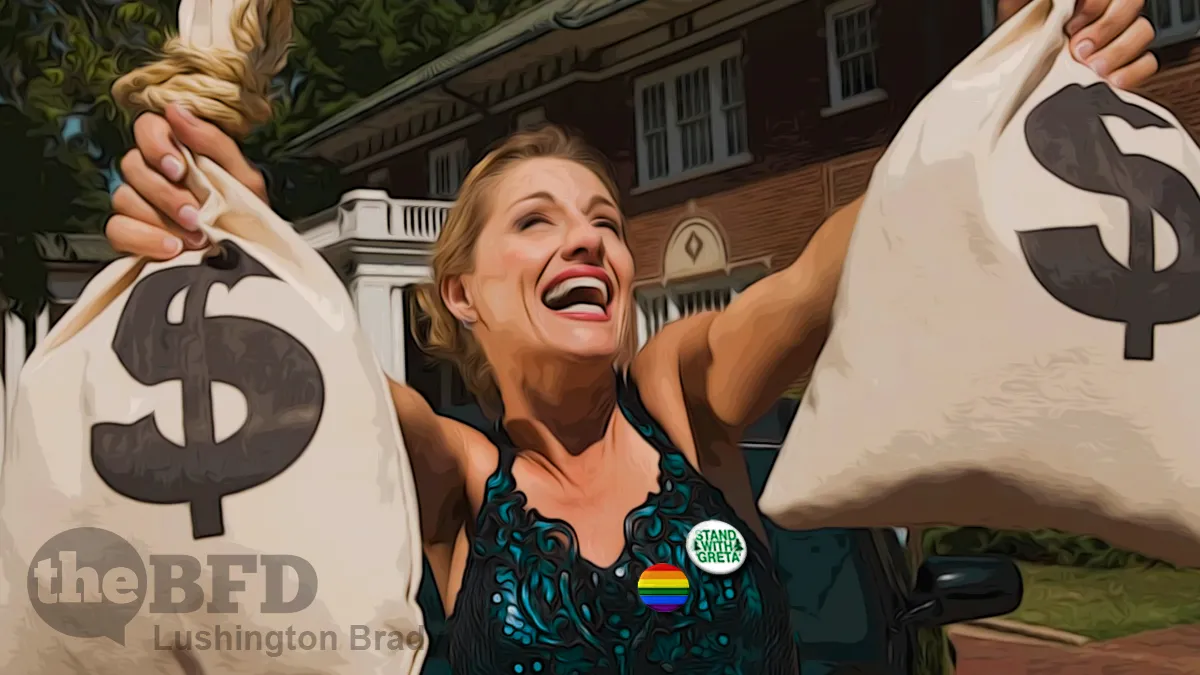Table of Contents
The recent referendum result in Australia showed in the starkest possible terms the yawning chasm between the tiny cliques of elites in the wealthy suburbs and the vast sprawl of ordinary Australians. Almost without exception, the “Yes” vote was confined to the wealthiest hotspots of Australia — not coincidentally, the citadels of the Greens and Teals.
The same yawning disconnect between the elite and the hoi polloi is just as evident in climate policy. Take note of any given climate protest: private school blazers, hyphenated surnames and posh accents are conspicuously dominant. The voting patterns are near-identical to the referendum: the Greens and Teals are clustered in the most exclusive suburbs and command the wealthiest voting bloc in the country.
Climate change is the ultimate boutique, luxury issue. Climate policy is most favoured by, and exclusively enacted by, the people who are least affected by it. It’s the epitome of Thomas Sowell’s observation that, “It is hard to imagine a more stupid or more dangerous way of making decisions than by putting those decisions in the hands of people who pay no price for being wrong”.
When a deranged obsession with “Net Zero” sends energy prices — and, as a consequence, the price of everything — through the roof, the rich who vote Teal and Green barely notice. When the same policies lead to food shortages, the private school kids “striking for climate” don’t go hungry. When hectares of native forest are bulldozed for wind farms, it doesn’t spoil the views in Double Bay or Ponsonby. Mangled eagles don’t litter the leafy streets of Fitzroy or Seatoun.
There is a public revolt by those who feel they can neither afford [“Net Zero”] nor understand the need to destroy their piece of nature to save the planet.
This is a phenomenon not confined to Australia. It has been a feature of renewable energy deployment from the start. What has changed is the scale of the ambition and the pushback. It is important that government and industry understand what is happening and where it might lead. Early signs of unravelling are snowballing through Europe where governments in Britain, Germany and France are walking back their ambitions on net-zero, which peaked in the lead up to the 2021 Glasgow climate conference.
“Climate action” is a textbook case of what Cambridge University researcher Rob Henderson calls “luxury beliefs”: ideas and opinions that confer status on the upper class while often inflicting costs on those less well off. While the elites are passionately addicted to their luxury beliefs every bit as much as they are to their luxury consumer goods, ordinary folk are much more pragmatic. Sure, a Bentley or BMW sounds nice, but who can afford it?
It’s when the elites try and force everyone to beggar themselves to try and buy a Rolls Royce that the common folk ark up.
Public protests at the rollout of large-scale renewable-energy projects and the transmission lines needed to support them is a reflection of social licence under strain. Rising energy costs and less-certain supplies of electricity are now firmly a mainstream concern. Henderson argues that a core feature of a luxury belief is that once a believer is no longer insulated from the consequences of his or her belief, it dissipates.
Those Manolo Blahniks aren’t quite so cute when you have to go without a week’s groceries to pay for them.
Ordinary Australians, far more used to having to match expectations with reality, are much clearer-eyed about “climate change” than the ivory tower elites gluing themselves to roads.
Despite publicity about extreme weather events and negative impacts of climate change, research by global analytics firm Dynata holds some uncomfortable truths. It finds that Australia has one of the largest proportions of people globally who report not being worried about global warming. More than half of Australian consumers (58 per cent) are also unwilling or slightly unwilling to adopt a more climate-friendly lifestyle if it costs more money.
Compared with 12 months ago, about the time of the election of the Albanese government, 41 per cent of those surveyed said they were less interested in buying a hybrid or electric car and 36 per cent were less interested in renewable energy […]
Dynata’s research report draws on responses from 11,000 consumers across 11 countries including the United States, Canada, United Kingdom, France, Germany, Italy, Spain, The Netherlands, China, Japan and Australia.
Their results mirror Australia, around the globe.
The fall in support explains why Chinese president Xi Jinping puts energy security and coal-fired power ahead of environmental posturing and British Prime Minister Riki Sunak has applied the brakes to the UK’s net-zero transition. Political leaders in Germany and France have been quick to follow Sunak’s lead.
Implicit in Sunak’s retreat was a recognition that elite opinion had lost touch with the average person. “What I have concluded during my time so far as prime minister is that those decisions can be so caveated, so influenced by special interests, so lacking in debate and fundamental scrutiny that we’ve stumbled into a consensus about the future of our country, that no one seems to be happy with,” he said.
The Australian
When ordinary voters wake up to what else the Climate Cult have got in store for us — a ban on gas heating, mandatory home upgrades for property owners, taxes on eating meat and compulsory car sharing if you drive to work — there will be electoral hell to pay.
And the cretins gluing themselves to roads and throwing paint at priceless artworks can expect to start copping a whole lot more than verbal abuse. Ordinary people around the world are at their wits’ end with the idiotic follies of the useless elite.
They’re not going to take it much longer.









